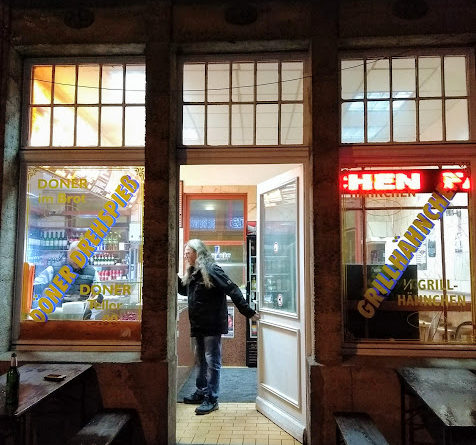
Introduction to the Moving to Berlin Guide 2023
More than any other European city, Berlin is in constant flux. When I compare to the original 2009 guide, I am startled by the pace of gentrification. But I’m also surprised how places in the city one never considered sexy or interesting are now centres of its creative life (think: Wedding or Moabit). Berlin is at its most exciting right now, because it’s got both edgy and glam. How long will it be before that edgy is erased is anyone’s guess. I’d put my bets on at least a decade before that happens––but with this city you never know. Perhaps it will be even better––more metropolitan, more exciting––then. More than ever, Berlin, the capital of Europe’s biggest economy, feels like a powerhouse. This is even more the case with the complications of Brexit, with many Europeans in the UK looking to Berlin as their alternative to London. Many folks are also taking stock of their lives post-pandemic and looking for a new start.
One thing Berlin has going for it is size. Berlin is eight times the size of Paris proper, with a population that is only a third larger (Berlin’s total population is 3,8 million within the city limits; the greater metropolitan area of Berlin is only 6,2 million though compared to Greater Paris’s 12 million). Even though neighbourhoods like Mitte or Prenzlauer Berg have been thoroughly gentrified, there is plenty of room left in the city to grow.
You may have already heard how difficult it is now to find an apartment in Berlin. It used to be that finding a job was impossible and finding a flat was easy. That’s since flipped. But despair not. In 2023, you can still find a place to live: it just might not be in a central neighbourhood you’ve heard of. And that’s often a good thing! Actually, many of the upcoming places aren’t near Mitte, but well-connected by public transport. Some survivalist tips are in the looking for an apartment section.
One of the biggest changes in the past decade is how much more international the city feels. 2015-2016 saw 100 000 refugees from the Middle East coming to the city. In the five years that followed, more than a quarter million new people moved to the city. Since the beginning of the Ukraine conflict, there have been an additional 100 000 war refugees from Eastern Europe arriving. The city is noticeably more Arabic and Ukrainian-speaking as a result.
Another change is that the food scene has massively improved, making Berlin one of the best places to be a foodie. It’s also noticeably more expensive to eat out than before the pandemic (I was recently in Paris and found the lunch specials there very good value in comparison). With these changes there are also record numbers of tourists (almost as many as Paris), more crime, more disparities, but also more opportunities for people looking for work (such as in startups or tourism). Berliners are finally earning more and more each year, approximately 3700 EUR/month brutto on average. Berlin still has one of Germany’s highest unemployment rates, but it has been decreasing historically (currently at 8,2% (June 2023), and it no longer characterises the city.
All this requires a revision of the most important sections of this guide to reflect a busier, more touristed, expensive but exciting city: how neighbourhoods have changed, how much your monthly costs might be, and what property prices now stand at. Please note that things change very quickly in the red tape section: to my knowledge what is written is accurate (although you may wish to read the comments which nuance what I say below) but do your own research on the official websites of the local authorities and government agencies with whom you deal to be sure.
Here’s the index to the Guide, click on what you want to read next!
-Media, Films, and Books about Berlin
This is an independent guide to Berlin, with no ghostwritten content and no sponsored links or tips, from The Needle.
Never miss a post! Subscribe:
For a history and portrait of Berlin, do check out my book!
(the author asserts his right to copyright, revised 07/2023)
***This information updated in July 2023 is intended as a guide only, and not professional advice. Any information presented here must be checked. Although the author has done his best to make sure this material is accurate, he takes no responsibility for inaccuracies or errors.***

